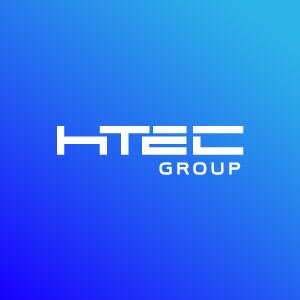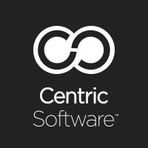The AI Revolution: Navigating the New Frontier of Data Management and Ethics
October 22, 2024, 4:36 am

Location: Sweden, Gothenburg
Employees: 1001-5000
Founded date: 2008
Total raised: $192.8M
In the ever-evolving landscape of technology, artificial intelligence (AI) stands as a beacon of innovation. It promises efficiency, accuracy, and transformative capabilities across industries. Yet, as businesses rush to adopt AI, they face a dual-edged sword: the potential for groundbreaking advancements and the looming specter of ethical dilemmas.
Ataccama, a leader in AI-powered data management, recently unveiled Ataccama ONE v15.3. This update is a game-changer for data-intensive sectors like finance and manufacturing. It addresses data quality challenges with speed and precision. The platform empowers data teams to harness their data effectively, enhancing security and compliance. With features like AI-generated test data and automated data hiding, Ataccama is paving the way for organizations to manage sensitive information confidently.
However, the rush to adopt AI is not without its pitfalls. A recent report from Stibo Systems highlights a troubling trend among U.S. business leaders. Many are diving headfirst into AI without adequate training or ethical frameworks. The survey reveals that 32% of leaders admit to hastily adopting AI technologies. Alarmingly, 58% acknowledge a lack of training in AI ethics. This gap in knowledge raises significant concerns about the responsible use of AI.
The stakes are high. Organizations that neglect ethical considerations risk not only their reputations but also their financial stability. Bias in AI systems can lead to skewed decision-making, while inadequate security measures can expose sensitive data to breaches. The report underscores the urgent need for comprehensive training programs that address these issues. Business leaders must prioritize ethical AI usage to safeguard their organizations and stakeholders.
In this landscape, Inflection AI's acquisition of Boundaryless marks a strategic move to bolster AI capabilities within enterprises. Boundaryless specializes in Robotic Process Automation (RPA) and has a proven track record of integrating AI solutions for Fortune 500 companies. This acquisition aims to accelerate the deployment of trusted AI agents, enhancing efficiency and accuracy in business operations. Inflection AI's holistic approach to AI integration positions it as a formidable player in the market.
As companies like Inflection AI push the boundaries of AI technology, the need for robust governance frameworks becomes even more critical. Organizations must establish clear guidelines for AI usage, ensuring that ethical considerations are woven into the fabric of their operations. This includes implementing bias mitigation policies and enhancing security measures to protect sensitive data.
Meanwhile, the software development sector is also undergoing a transformation. Scrums.com, formerly known as SovTech, has rebranded to emphasize its commitment to AI-driven solutions. The company is launching a subscription-based AI software development service, aiming to streamline the development lifecycle. This approach allows businesses to scale efficiently while maintaining transparency and collaboration.
The integration of AI into software development is revolutionizing the industry. By automating tasks and synthesizing data, AI accelerates project timelines and enhances the quality of deliverables. Scrums.com’s focus on agile methodologies aligns with the fast-paced demands of modern businesses, positioning it as a leader in the field.
In the realm of robotics, Universal Robots has introduced the UR AI Accelerator, a toolkit designed to empower developers in creating AI-powered collaborative robots (cobots). This innovation promises to reduce time to market for AI applications, enabling businesses to leverage cutting-edge technology swiftly. The UR AI Accelerator integrates seamlessly with existing platforms, providing developers with the tools they need to innovate.
As these advancements unfold, the importance of ethical considerations remains paramount. The rapid pace of AI adoption necessitates a proactive approach to governance. Organizations must prioritize training in AI literacy and ethics, ensuring that their teams are equipped to navigate the complexities of this technology.
The intersection of AI and ethics is a critical frontier for businesses. As they harness the power of AI to drive efficiency and innovation, they must also grapple with the ethical implications of their choices. The potential for bias, security risks, and reputational damage looms large. Business leaders must take a step back and assess their readiness to embrace AI responsibly.
In conclusion, the AI revolution is here, bringing with it a wave of opportunities and challenges. Companies like Ataccama, Inflection AI, Scrums.com, and Universal Robots are at the forefront of this transformation, pushing the boundaries of what is possible. However, as they navigate this new landscape, they must remain vigilant. The future of AI depends not only on technological advancements but also on the ethical frameworks that guide their implementation. Embracing AI responsibly will be the key to unlocking its full potential while safeguarding the interests of all stakeholders involved.
Ataccama, a leader in AI-powered data management, recently unveiled Ataccama ONE v15.3. This update is a game-changer for data-intensive sectors like finance and manufacturing. It addresses data quality challenges with speed and precision. The platform empowers data teams to harness their data effectively, enhancing security and compliance. With features like AI-generated test data and automated data hiding, Ataccama is paving the way for organizations to manage sensitive information confidently.
However, the rush to adopt AI is not without its pitfalls. A recent report from Stibo Systems highlights a troubling trend among U.S. business leaders. Many are diving headfirst into AI without adequate training or ethical frameworks. The survey reveals that 32% of leaders admit to hastily adopting AI technologies. Alarmingly, 58% acknowledge a lack of training in AI ethics. This gap in knowledge raises significant concerns about the responsible use of AI.
The stakes are high. Organizations that neglect ethical considerations risk not only their reputations but also their financial stability. Bias in AI systems can lead to skewed decision-making, while inadequate security measures can expose sensitive data to breaches. The report underscores the urgent need for comprehensive training programs that address these issues. Business leaders must prioritize ethical AI usage to safeguard their organizations and stakeholders.
In this landscape, Inflection AI's acquisition of Boundaryless marks a strategic move to bolster AI capabilities within enterprises. Boundaryless specializes in Robotic Process Automation (RPA) and has a proven track record of integrating AI solutions for Fortune 500 companies. This acquisition aims to accelerate the deployment of trusted AI agents, enhancing efficiency and accuracy in business operations. Inflection AI's holistic approach to AI integration positions it as a formidable player in the market.
As companies like Inflection AI push the boundaries of AI technology, the need for robust governance frameworks becomes even more critical. Organizations must establish clear guidelines for AI usage, ensuring that ethical considerations are woven into the fabric of their operations. This includes implementing bias mitigation policies and enhancing security measures to protect sensitive data.
Meanwhile, the software development sector is also undergoing a transformation. Scrums.com, formerly known as SovTech, has rebranded to emphasize its commitment to AI-driven solutions. The company is launching a subscription-based AI software development service, aiming to streamline the development lifecycle. This approach allows businesses to scale efficiently while maintaining transparency and collaboration.
The integration of AI into software development is revolutionizing the industry. By automating tasks and synthesizing data, AI accelerates project timelines and enhances the quality of deliverables. Scrums.com’s focus on agile methodologies aligns with the fast-paced demands of modern businesses, positioning it as a leader in the field.
In the realm of robotics, Universal Robots has introduced the UR AI Accelerator, a toolkit designed to empower developers in creating AI-powered collaborative robots (cobots). This innovation promises to reduce time to market for AI applications, enabling businesses to leverage cutting-edge technology swiftly. The UR AI Accelerator integrates seamlessly with existing platforms, providing developers with the tools they need to innovate.
As these advancements unfold, the importance of ethical considerations remains paramount. The rapid pace of AI adoption necessitates a proactive approach to governance. Organizations must prioritize training in AI literacy and ethics, ensuring that their teams are equipped to navigate the complexities of this technology.
The intersection of AI and ethics is a critical frontier for businesses. As they harness the power of AI to drive efficiency and innovation, they must also grapple with the ethical implications of their choices. The potential for bias, security risks, and reputational damage looms large. Business leaders must take a step back and assess their readiness to embrace AI responsibly.
In conclusion, the AI revolution is here, bringing with it a wave of opportunities and challenges. Companies like Ataccama, Inflection AI, Scrums.com, and Universal Robots are at the forefront of this transformation, pushing the boundaries of what is possible. However, as they navigate this new landscape, they must remain vigilant. The future of AI depends not only on technological advancements but also on the ethical frameworks that guide their implementation. Embracing AI responsibly will be the key to unlocking its full potential while safeguarding the interests of all stakeholders involved.


